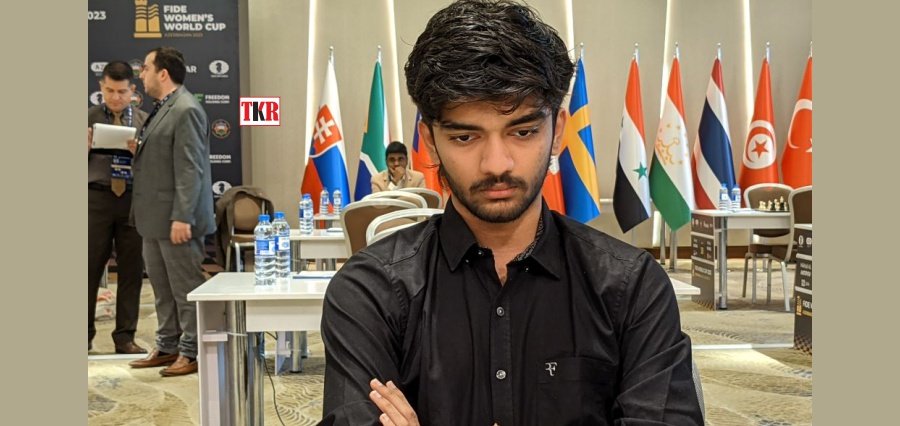In the contemporary business landscape that is increasingly getting fiercely competitive, effective leadership is the key to success for professionals aspiring to become brand leaders.
Whether you are an entrepreneur, a middle manager, or a seasoned executive, honing your leadership skills is essential for driving innovation, motivating teams, and fostering a strong brand presence.
Embrace Authentic Leadership
Authenticity is the cornerstone of effective leadership. To become a brand leader, professionals must cultivate a genuine and transparent leadership style that resonates with their teams and stakeholders. Authentic leaders build trust and credibility by staying true to their values, leading with integrity, and demonstrating vulnerability when needed.
One exemplary brand leader known for his authentic leadership style is Howard Schultz, the former CEO of Starbucks. Schultz demonstrated a genuine passion for coffee and the Starbucks brand, connecting with employees and customers on a personal level. His authentic approach contributed to Starbucks’ success as a global coffeehouse chain and a beloved brand.
Develop Visionary Thinking
Brand leaders are visionaries who can articulate a compelling vision for the future of their organizations. Developing visionary thinking involves anticipating trends, understanding market dynamics, and envisioning innovative solutions to address evolving customer needs. Communicating this vision effectively inspires and motivates teams to achieve a common goal.
A prime example of visionary leadership is Elon Musk, the CEO of Tesla and SpaceX. Musk’s innovative thinking has revolutionized the electric vehicle industry and space exploration. He envisioned a sustainable future and led Tesla to become a leading electric car manufacturer, challenging conventional automotive norms.
Cultivate Emotional Intelligence
Emotional intelligence is a critical leadership skill that enables professionals to understand and manage their emotions and those of others. Brand leaders with high emotional intelligence can navigate complex interpersonal dynamics, build strong relationships, and foster a positive and supportive work environment.
Satya Nadella, the CEO of Microsoft, is a prominent example of a brand leader with high emotional intelligence. Under his leadership, Microsoft has shifted its focus towards cloud computing and AI, fostering a culture of empathy and collaboration among employees, which has led to significant organizational growth and success.
Foster a Culture of Innovation
Innovation is the lifeblood of successful brands. As brand leaders, professionals must foster a culture of innovation within their organizations. Encouraging creativity, empowering teams to take calculated risks, and rewarding innovative thinking can drive continuous improvement and differentiation in the marketplace.
Reed Hastings, the co-founder and CEO of Netflix, is known for fostering a culture of innovation within the company. By empowering employees to experiment and take risks, Netflix has disrupted the entertainment industry with its streaming platform and original content, solidifying its position as a global media powerhouse.
Master the Art of Decision-Making
Effective decision-making is a hallmark of successful brand leaders. Professionals must cultivate the ability to make well-informed and timely decisions based on data, insights, and intuition. Delegating decision-making when appropriate and being accountable for the outcomes are equally important aspects of mastering this art.
Jeff Bezos, the founder and former CEO of Amazon, exemplifies strong decision-making skills. Throughout Amazon’s growth, Bezos made bold decisions, such as expanding into cloud computing with Amazon Web Services (AWS). His ability to make well-informed decisions has been instrumental in Amazon’s success as a leading e-commerce and technology giant.
Build High-Performing Teams
Brand leaders recognize that their success is intrinsically tied to the success of their teams. Investing in team development, nurturing diverse talents, and empowering individuals to excel in their roles contribute to creating high-performing teams that drive organizational success.
Indra Nooyi, the former CEO of PepsiCo, is known for her focus on diversity and talent development. Under her leadership, PepsiCo prioritized employee well-being and professional growth, fostering a culture of inclusivity and innovation that contributed to the company’s global success.
Cultivate a Growth Mindset
A growth mindset is essential for personal and organizational growth. Brand leaders with a growth mindset embrace challenges, view failures as learning opportunities, and continuously seek ways to improve and innovate.
Sundar Pichai, the CEO of Google and Alphabet Inc., embodies a growth mindset. He encourages Google’s employees to experiment, learn from failures, and embrace change, which has led to Google’s continuous innovation and expansion into various technology domains.
Leverage Technology and Data
In the digital age, brand leaders must be tech-savvy and data-driven. Leveraging technology and data analytics can help professionals make informed business decisions, optimize processes, and gain a competitive advantage in the market.
Angela Ahrendts, the former Senior Vice President of Apple Retail, successfully integrated technology and human-centric design to enhance the Apple Store experience. By leveraging data insights, Apple stores became retail spaces and community hubs, fostering brand loyalty and customer engagement.
Communicate Effectively
Clear and effective communication is a fundamental skill for brand leaders. Articulating the organization’s vision, providing regular feedback to teams, and communicating transparently with stakeholders is critical for building a strong brand identity and reputation.
Mary Barra, the CEO of General Motors, is known for her transparent and straightforward communication style. During her tenure, Barra has effectively communicated the company’s vision and transformational initiatives, positioning GM as a leader in electric vehicles and autonomous driving technology.
Lead with Purpose
Lastly, brand leaders lead with purpose and a commitment to creating a positive impact on society. Aligning business objectives with social and environmental responsibility can not only attract customers but also attract purpose-driven employees and investors.
Paul Polman, the former CEO of Unilever, embraced a purpose-driven approach to business, focusing on sustainability and social impact. Under his leadership, Unilever implemented the Sustainable Living Plan, addressing global challenges such as climate change and promoting responsible business practices.
The World is Waiting for Your Future Leadership
Becoming the next brand leader requires all these traits. Embrace these business leadership hacks, and see for yourself the transformation in front of your eyes. You will find your leadership skills elevated to the next level. You can surely carve a path towards success as an influential brand leader.
Leading with purpose, cultivating innovation, and building high-performing teams are the pillars that transform a professional from a manager to a true brand leader. Embodying these principles empowers professionals to make a lasting impact, inspire change, and build successful and reputable brands in the dynamic and competitive global business landscape.
Are you ready? The future is waiting for your coming of age.
Read More: Click Here





